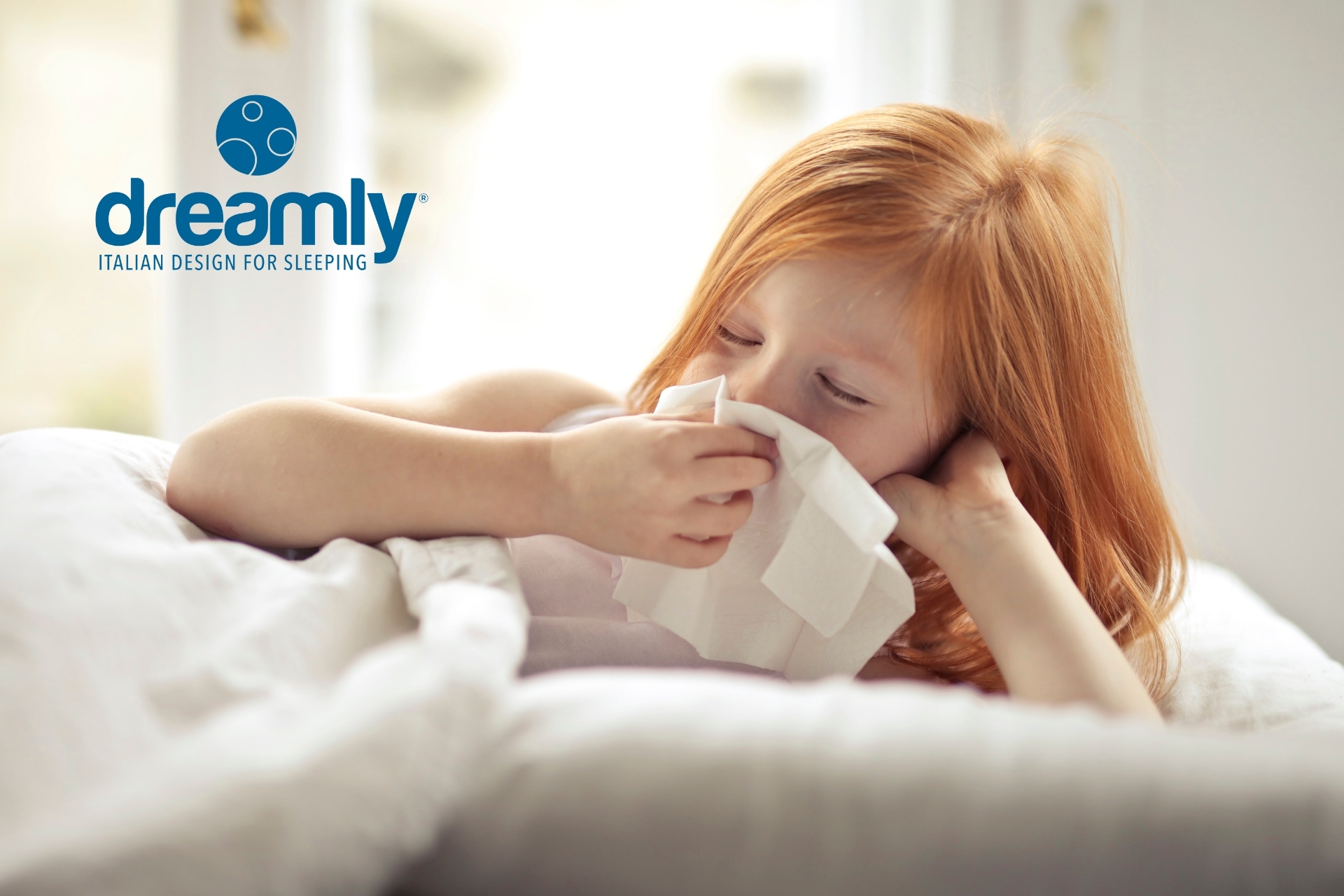
Spring Allergies and Sleep: 4 Tips for Better Rest
Why Do Spring Allergies Disrupt Sleep?
With the arrival of spring, days get longer, temperatures rise, and nature comes back to life. However, for those suffering from seasonal allergies, this time of year can quickly turn into a nighttime nightmare. Sneezing, nasal congestion, itchy eyes, and breathing difficulties can all disrupt sleep, making it harder to fall asleep and stay asleep.
The main culprit behind these sleep disturbances is the presence of pollen, dust, and dust mites, which trigger inflammatory reactions in the respiratory system. As mucus production increases and breathing becomes more difficult, sleep is frequently interrupted throughout the night, leading to a constant feeling of fatigue upon waking. However, with a few targeted strategies to reduce exposure to allergens and create a healthier sleep environment, it is possible to enjoy better rest, even during allergy season.
4 Tips to Improve Sleep During Allergy Season
One of the most essential factors for better sleep is choosing the right bedding. Using anti-dust mite pillowcases and mattress covers helps limit exposure to allergens by preventing contact with dust and mites. Additionally, washing sheets at least once a week at 60°C (140°F) is a great habit to eliminate irritating particles and maintain a cleaner sleep environment. Breathable and hypoallergenic fabrics are ideal for allergy sufferers as they help reduce pollen buildup and provide a more comfortable rest.
Keeping the bedroom clean and well-ventilated is just as important. To prevent pollen from entering the home, it is best to open windows early in the morning or late at night, when pollen concentrations are lower. Using an air purifier with a HEPA filter can also be highly effective in trapping fine dust particles and allergens, improving air quality and promoting a restful sleep. Vacuuming regularly and wiping down surfaces with a damp cloth also help minimize allergens in the bedroom.
After spending time outdoors, pollen settles on skin and hair, inevitably transferring onto pillows and worsening nighttime allergy symptoms. Taking a shower before bed helps remove allergens and keeps bedding cleaner. Changing clothes before entering the bedroom is another simple yet effective measure, as is regularly cleaning items that accumulate pollen, such as bags and jackets.
Bedroom furniture and decor also play a crucial role in ensuring quality sleep. Carpets, heavy curtains, and wool blankets tend to trap allergens and dust, increasing the risk of allergic reactions. Opting for light, washable curtains and minimizing fabric-covered furniture helps create a healthier and more comfortable sleep environment. If possible, replacing carpets with easy-to-clean flooring and reducing unnecessary clutter in the bedroom further improves air quality and prevents exposure to airborne allergens.
Sleeping Well Despite Allergies: The Key is a Healthy Environment
Spring allergies can interfere with sleep, but with a few smart adjustments, it is possible to improve sleep quality and minimize nighttime discomfort. Creating a clean, hypoallergenic sleep space, choosing the right bedding, and adopting good nighttime habits can significantly reduce allergen exposure and help you sleep better. Spring can be a season of energy and vitality, even for allergy sufferers, if the right precautions are taken to ensure restorative sleep.
Want to enhance your sleep? Discover Dreamly’s solutions for a healthier and more natural rest!
Dreamly: a brand by Elettroidea & MEF
Via dell’Industria, 33
37060 Sona, Verona - Italy
Phone: +39 045 6082365
Fax: +39 045 6088650
E-mail: info@dreamlydesign.com
Elettroidea s.r.l.
Via dell’industria, 33
37060 Sona, Verona - Italy
Phone: +39 045 6082365
Fax: +39 045 6088650
E-Mail: info@elettroideasrl.com
MEF s.r.l.
Via dell’industria, 35
37060 Sona, Verona - Italy
Phone: +39 045 6082365
Fax: +39 045 6088650
E-Mail: info@elettroideasrl.com